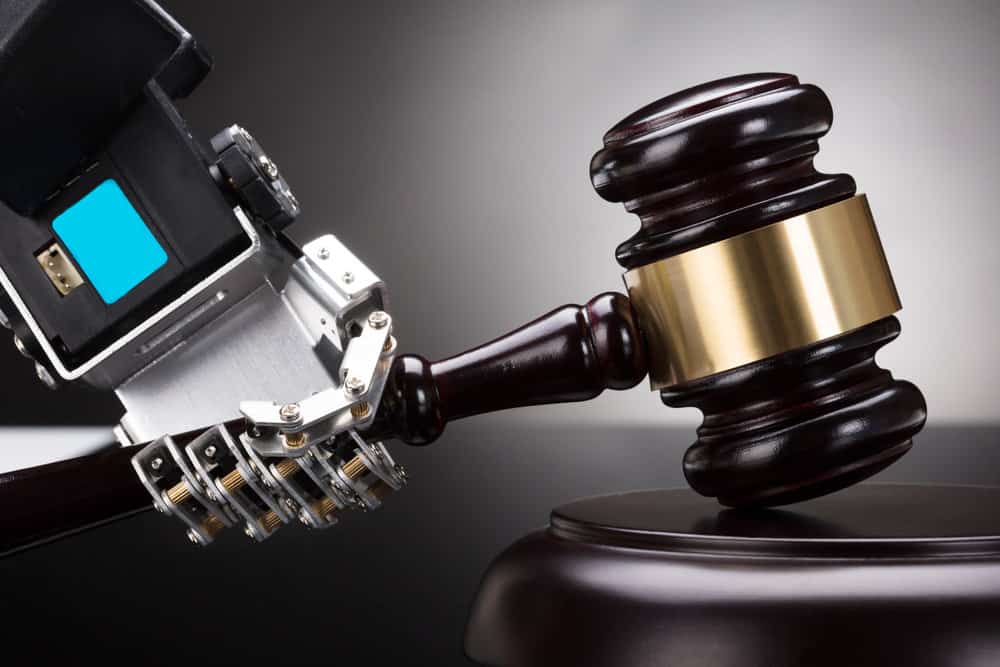Artificial intelligence has been making major headway in many areas of the workforce, bringing considerable changes to fields such as architecture, agriculture, sports analytics, etc., and even the law industry. Improving so many fields of work, how has artificial intelligence changed the law industry for the better?
Artificial intelligence has improved the law industry in several ways, such as data processing and legal research, generating the content, and decreasing overall stress. In addition, artificial intelligence has made the law industry more productive, giving lawyers more time to focus on their clients and cases rather than tedious paperwork and information.
The rest of this article will describe how artificial intelligence has improved the law industry.
Data Processing and Research
Artificial intelligence (AI) has improved data processing and research in law practices. It can help with the discovery process, which is one of the most time-consuming aspects of the practice and can present many challenges for attorneys. AI can help facilitate this process by sorting through data and information to locate relevant documents. AI can also sort through various ways the topic may be referenced.
Artificial intelligence can improve data processing as it is programmed to work with patterns and large amounts of data. AI can:
- sort through unstructured data from information related to the case
- identify changes in regulations and notify legal teams of changes in terms
- locate key terms in documents as well as other languages that is relevant to the case and
- identify inconsistencies in contracts that could cause problems later in the legal process.
When it comes to legal research, AI can’t replace human actions. However, it can improve them by simplifying the process’s more time-consuming, data-related aspects. It gives law teams better research capabilities, using algorithms to sort a significant amount of information.
Improved Case Building and Content Production
Artificial intelligence can help with case building and content production, analyzing draft arguments, and putting together legal contracts. Although the ability to generate content is limited, it can still help with the initial stages of writing legal contracts and other documents. When it comes to analyzing draft arguments, AI can assist in identifying weak aspects of the argument and locating inaccurate information.
Computers that have been programmed with legal-based information can also assist in the reviewing of contracts and other documents. AI’s ability to process large amounts of information can help attorneys find errors and problems in contracts and other legal documents that may have otherwise been missed. By doing this, artificial intelligence can speed up the process of reviewing documents and make it more consistent and accurate.
In addition to the more technical aspects of artificial intelligence, it can assist with case building by improving interdepartmental communication. For example, AI can help legal teams avoid long, arduous meetings while keeping them moving forward on the same page.
Improved Morale and Decreased Stress
Though AI is taking up the more time-consuming tasks, artificial intelligence won’t replace lawyers. However, it will instead give them time to focus on other tasks, allowing them to focus on case building and personal relationships with clients.
The legal profession is known for taking up much time, and lawyers have high rates of stress and depression, which can negatively affect their work. Artificial intelligence could significantly improve morale by reducing the long hours and stress that come with the field.
Conclusion
Some people fear artificial intelligence is taking over careers, displacing workers for more high-speed, consistent technology. However, it is quite the opposite in many fields, such as the law industry.
Artificial intelligence holds significant benefits for legal teams and lawyers, decreasing the time spent on data processing and legal research and improving morale and time management. In addition, by not focusing on tedious tasks, lawyers can devote more energy to case building and the more personal aspects of the legal process.
As the field of technology continues to change, seeing new improvements such as artificial intelligence, many other professions will begin to see significant benefits. The law industry is no exception, and artificial intelligence holds a great deal for the future of the legal field.



